

Welcome to the Research Hub for the UCO School of Osteopathy
The UCO School of Osteopathy Research Hub leads innovative research initiatives advancing evidence-based osteopathic practice globally. Our diverse portfolio spans clinical trials, educational innovations, and international collaborations. Our team investigates cultural diversity in education, develops novel interventions for conditions like diabetic neuropathy, validates palpation techniques with advanced imaging, and establishes quality standards for clinical trials. Through partnerships with organisations like The Osteopathic Foundation and the General Osteopathic Council, we’re committed to strengthening research capacity, improving patient outcomes, and evolving osteopathic education to meet diverse healthcare needs.

Overcoming barriers to EDI in Healthcare Education
This study aimed to explore cultural diversity awareness in osteopathic education, examining how well students are prepared to manage patients from diverse backgrounds and investigating experiences of students from underrepresented groups.
Dr Draper-Rodi and the team found that among 202 surveyed students, 62 identified with underrepresented groups. Main challenges included staff attitudes, limited student support, and lack of representation in curricula. This led to recommendations for improving institutional policies, enhancing student support services, and implementing staff EDI training.
Funding: The Osteopathic Foundation, Health Sciences University, the General Osteopathic Council and the Institute of Osteopathy.
Find out about the UrGEnT project
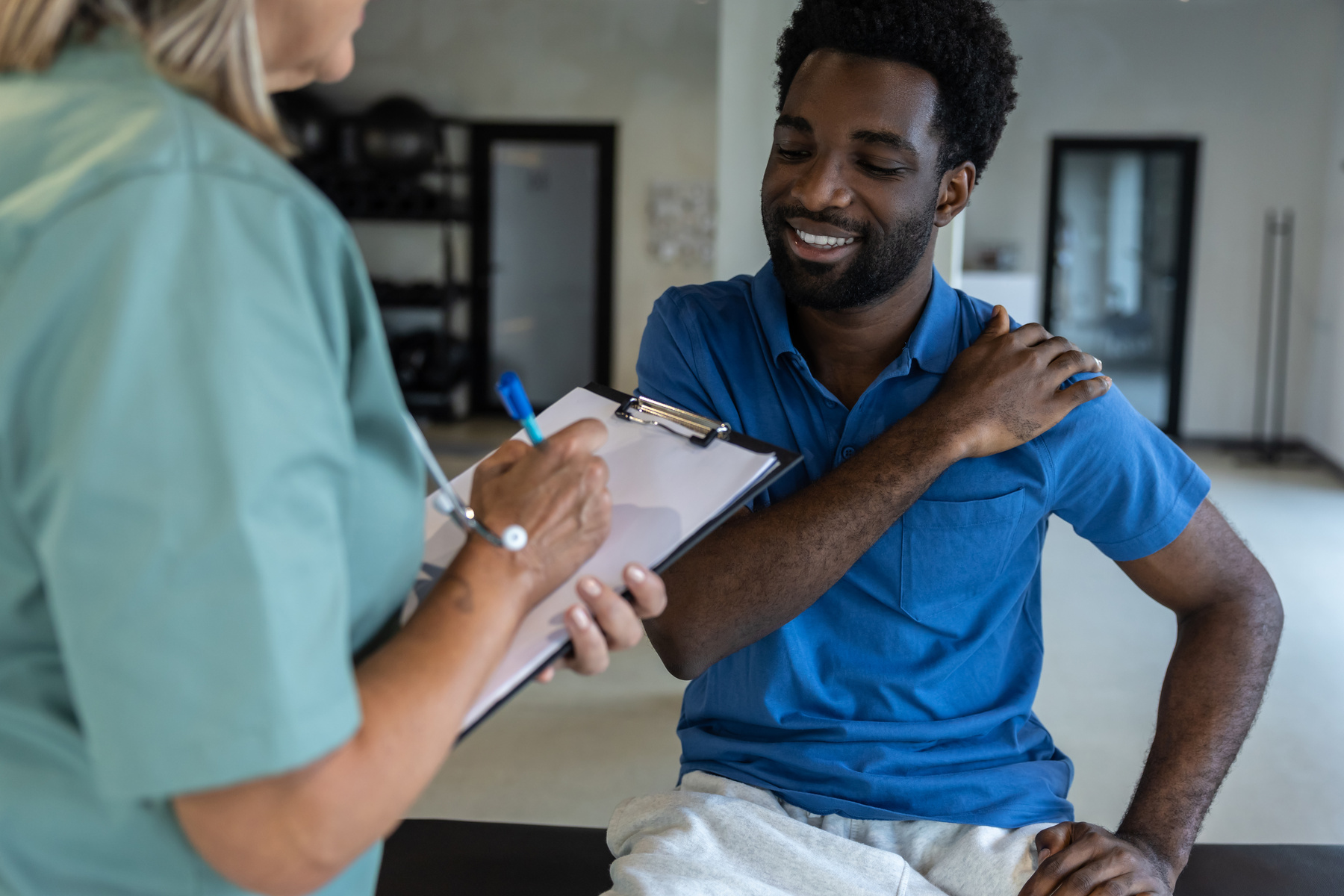
Osteo-TAQ: understanding osteopathic practice worldwide
This international research programme aims to investigate how osteopaths conceptualise and approach their clinical practice through the Osteopaths’ Therapeutic Approaches Questionnaire (Osteo-TAQ). The project explores therapeutic strategies, decision-making processes, and professional identities within osteopathy across different countries and healthcare contexts.
Dr Thomson and the international research team have conducted national cross-sectional studies in Australia and France, with the UK study ongoing. The research has validated the questionnaire’s ability to capture the complexities of clinical practice across different cultural contexts and confirmed the diversity of therapeutic approaches among osteopaths. Through international collaborations, the project is building a comprehensive understanding of how osteopathic practice varies globally and how this affects patient care.
A new PhD opportunity at HSU will explore how osteopathy students’ understanding of practice evolves during their clinical training using the Osteo-TAQ tool, aiming to validate the questionnaire for student populations and understand the development of professional identity. For more information, contact Dr Oliver Thomson at HSU.

The OsMoSys Project
This international research initiative examines how theoretical models and concepts are taught in osteopathic education worldwide, aiming to strengthen evidence-based practice and foster coordination among institutions.
Dr Draper-Rodi and the international research team are currently conducting this study through comprehensive literature review, consultation with course leaders, and surveys of educators. Results will provide a framework for understanding model implementation in clinical practice and support curriculum development globally.
Funding: Swiss Osteopathic Science Foundation and The Osteopathic Foundation
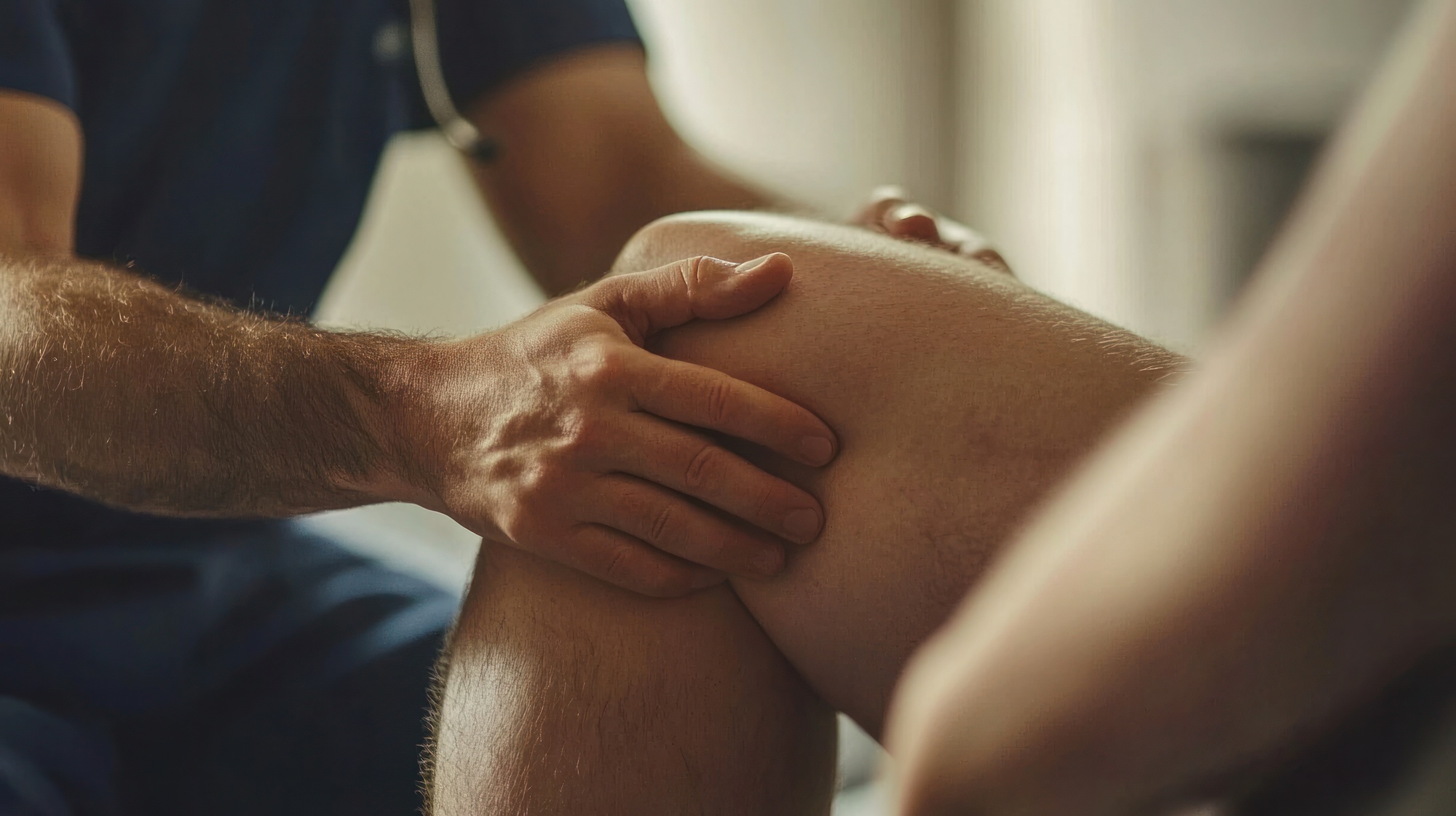
NeuOst for diabetic neuropathy
This study aims to develop and test a novel manual therapy-based intervention for people with painful diabetic peripheral neuropathy, combining physical and psychological approaches.
Dr Hohenschurz-Schmidt and the team have successfully developed the intervention protocol and training materials, and designed a three-arm feasibility trial. The ongoing study will determine whether a full-scale clinical trial is warranted and guide refinement of the intervention.
Funding: The Alan and Sheila Diamond Charitable Trust and the Osteopathic Foundation.

The PROCare Project
This international research initiative aims to identify and analyse research priorities across the osteopathic profession, examining how different stakeholders conceptualize research importance and how contextual factors influence research prioritization.
Prof Vaucher and the international research team conducted a mixed-methods study combining qualitative framework development with an international cross-sectional survey. The research captured perspectives from 2,229 participants across 42 countries, identifying three distinct approaches to priority-setting: conservative (42.9%), sceptic (20.2%), and enthusiast (36.9%). The study validated the PROCare framework as a structure for evaluating osteopathic research priorities.
This project offers valuable insights for research strategy and funding allocation in osteopathic care.

The CoPPS Statement
This international consensus project aimed to establish quality standards for control interventions in clinical trials, specifically for physical, psychological, and self-management therapies.
Dr Hohenschurz-Schmidt led an international team that developed comprehensive guidelines through expert consensus. The resulting framework provides standards for control intervention design, enhances trial reporting transparency, and establishes benchmarks for research quality in non-pharmacological interventions.

Light touch osteopathy for infantile colic
This international multi-centre study aimed to test whether usual light touch osteopathic treatment was more effective than simple light touch without therapeutic intent for infants with colic.
Prof Carnes and the team found no significant difference between groups, with the test group crying only 2.2 minutes more per day than the control group. Both interventions proved safe with high parent satisfaction, suggesting that biomechanical explanatory models for osteopathic light touch care may need reconsideration.

OSCAR: Evaluating Osteopathic Treatment for Low Back Pain
This innovative study aimed to examine how change unfolds during osteopathic treatment for non-specific low back pain using a rigorous single-case experimental design (SCED). The research compared standard osteopathic treatment with biopsychosocially-informed management while testing the feasibility of implementing SCED methodology in osteopathic practice.
Dr Draper-Rodi and the team found significant improvements in pain and function during treatment, with benefits sustained over three months. The study showed daily decreases in pain scores and disability scores during treatment. While recruitment proved challenging, nine of eleven recruited patients provided sufficient data for analysis, demonstrating that SCED methodology can be successfully implemented in osteopathic practice. The research established an innovative framework for studying individual patient responses to treatment while highlighting practical considerations for future practice-based research.

SOLAR Programme
Launched in 2020, the Strengthening Osteopathic Leadership And Research (SOLAR) programme aims to enhance research capacity and leadership within the osteopathic profession through international collaboration and mentorship.
The SOLAR team has produced 49 peer-reviewed publications, secured £1.1 million in research grants, and delivered 50 international conference presentations. Fifteen emerging research leaders from seven countries are actively contributing to advancing evidence-based practice in osteopathy.
Funding: The programme is supported by key international organisations including Osteopathy Australia, The Osteopathic Foundation (UK), Osteopaths New Zealand, Unite Pour l’Osteopathie (France), and Svenska Osteopatförbundet (Sweden).

GOsC Shared Decision making
The General Osteopathic Council commissioned members of the UCO research department, led by Professor Dawn Carnes, to survey registrants on the level of awareness and use of their shared decision making tools. Shared decision making is a joint process in which a healthcare professional works with a patient to help them reach a mutual decision about their care. It allows patients to discuss information in a way that is meaningful for them and enables them to have a good understanding of the benefits, harms, and possible outcomes of different treatment options.

Osteopathic Palpation of Muscle Validated with Time-Domain Near Infrared Spectroscopy
Palpation is a tool widely used by osteopaths, but its validity and reliability has been questioned. Time-domain near-infrared spectroscopy (TD-NIRS) can provide insights into tissue oxygenation and structure. This study, in a collaboration between Dr Kevin Brownhill, UCO student Audrey Buot and Dr Frédéric Lange (Department of Medical Physics & Biomedical Engineering, UCL) sought to examine changes in muscle identified as tight by an osteopath.
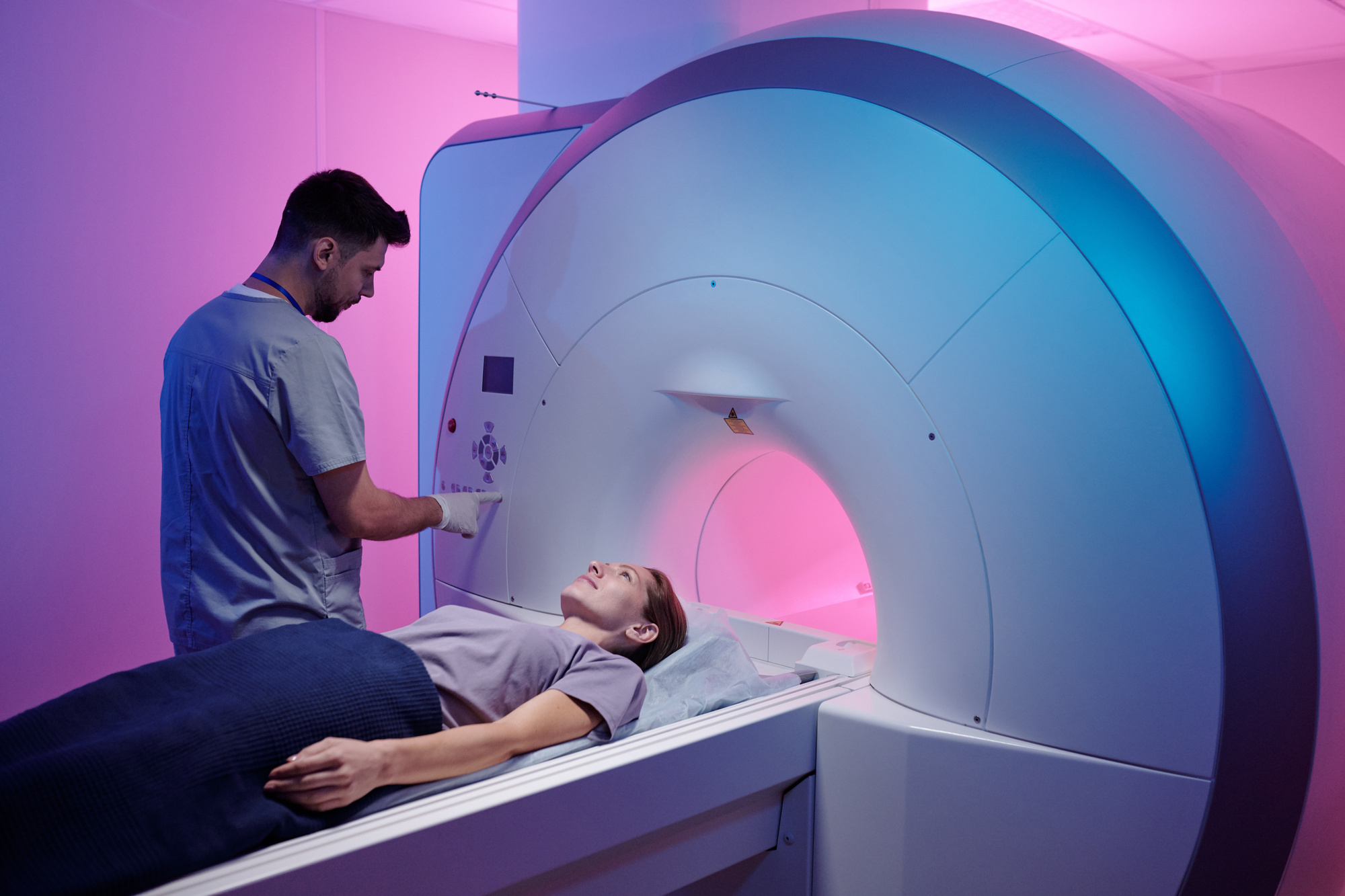
Measuring intervertebral motion using real-time MRI
In this collaboration between Kevin Brownhill and the University of Exeter, lead by Dr Fiona Mellor, we assess the feasibility of measuring intervertebral motion using a modern T3 MRI scanner. This is an on-going study. We hope to present the initial results at the UK Imaging and Oncology Congress, June 2025.
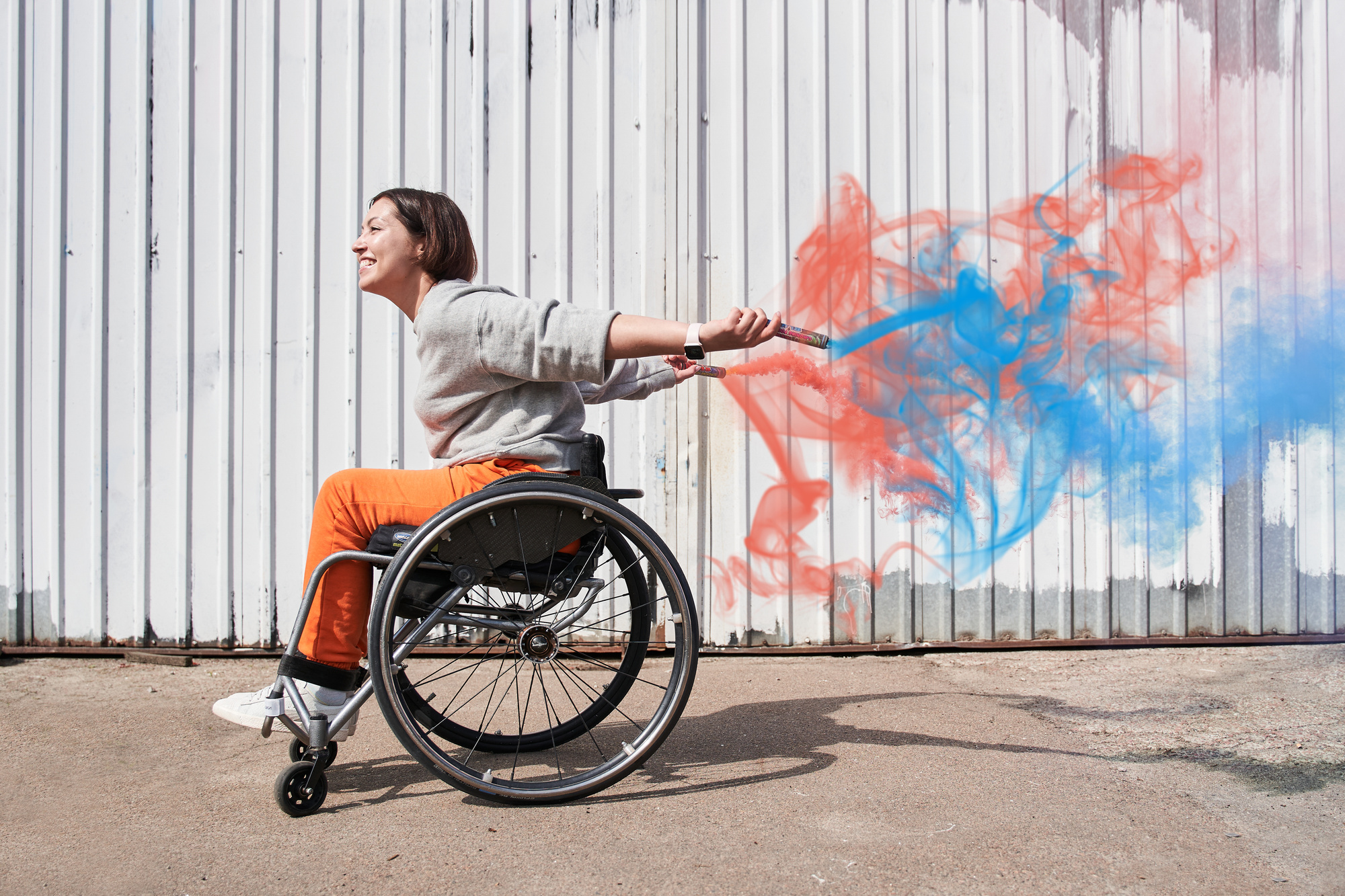
Measuring Self-Reported Disability
In this collaboration between Kevin Brownhill and David Evans, assistant professor in musculoskeletal healthcare at the University of Birmingham, UK, we examine the properties of a new disability questionnaire which seeks to assess disability from all causes, rather than just pain-related disability. This leads on from pioneering work by David Evans into the measurement of self-reported disability.
Additional Information
Research Ethics 
Research Ethics
The current UCO research ethics process and committee was constituted in 2005.
The UCO strives to produce work to high academic and ethical standards in all areas of practice. We believe that robust ethical review is an essential part of the research process as it contributes to assuring accessibility, quality and the safeguarding of participants and researchers. As part of this process all proposed research work undergoes ethical consideration whether it involves participants within the institution or outside the institution; this currently includes students and staff from the UCO and applications from external students and others who would like to carry out work usually involving our faculty, students or patients. The same criteria apply to funded or postgraduate research. We also review proposals from external institutions planning to research osteopathic practice outside of the institution.
The UCO adheres to standards of good practice identified in the Osteopathic Research Governance Framework produced by the National Council of Osteopathic Research. This framework was informed by existing national policy and adapted to the context of the osteopathic profession. Processes and procedures are reviewed and amended annually.
The UCO’s Research Governance and Integrity Policy and Research Misconduct Policy were developed in line with the UUK Concordat to Support Research Integrity, and set out our commitment to the following principles:
- That our research is underpinned with common values of rigour and integrity
- That we nurture a research environment that supports research of the highest standards of rigour and integrity
- That our research confirms to all ethical, legal and professional obligations
- That we use transparent, robust and fair processes to handle allegations of misconduct
- That we continue to monitor, and where necessary improve, the suitability and appropriateness of the mechanisms in place to provide assurances over the integrity of research.
Terms of Reference: Research Ethics Committee (REC)
Research Values and Strategy 
Research Values and Strategy
Research activities are underpinned by the UCO School of Osteopathy’s mission statement to: “continually provide the highest quality education and research for all and the very best care, for each patient, on every occasion”.
The values that guide these activities include a commitment to developing an open and honest culture of critical enquiry, scholarship and research, which maintains respect for the heritage and values of osteopathy. The strategies we have developed for research management and governance aim to promote high quality research and scholarship to support evidence-informed education and clinical practice within the institution and throughout the osteopathic profession.
The aim of the Research Centre is to promote research and evidence based practice in osteopathy at local, national and international level. Its core activities are to deliver high quality research from the faculty, in collaboration with other institutions, with stakeholder partners and to disseminate findings. We assist clinical staff undertaking research or audit projects, provide research training and teaching and supervise undergraduate, postgraduate and doctoral students.
The Research Centre supports the School’s values and has several key aims:
- To establish and maintain a recognisable reputation for high quality research at both a national and international level
- To ensure quality and integrity in the planning, conduct and management of research, in reporting and disseminating the results, and in the
- delivery and reporting of research impact.
- To contribute to the body of osteopathic knowledge
- To promote evidence-informed care
- To support high quality education within the school
- To contribute to the wider academic research and healthcare communities
- To support sustainable activity and the achievement of the school’s strategic goals
Research funding and travel grants 
Research funding and travel grants
Our research funding and research travel grants are outlined below:
- 2023: A mixed methods evaluation of the General Osteopathic Council shared decision making resources. Prof. Dawn Carnes. GOSC £20,000
- 2022 -2023: Optimising opportunities for AHP research and AHP researchers. Prof. Dawn Carnes. Health Education England and Council for Allied Health Professions in Research £15,000
- 2022- ongoing: NeuOst – Osteopathy for Diabetic Neuropathy project. David Hohenschurz-Schmidt, Dr Jerry Draper-Rodi, Steven Vogel, from the Osteopathic Foundation (£20,000) and the Alan and Sheila Diamond Charitable Trust (£50,000)
- 2021 – ongoing: Osteo-TAQ Australia: Osteopaths Therapeutic Approaches in Australia. Dr Oliver Thomson, Dr Brett Vaughan, Michael Fleischman, and Dr Gopi McLeod. £6,800 from Osteopathy Australia.
- 2020 – 2024: International osteopathic research leadership fellowship: Dr Jerry Draper-Rodi and Dr Oliver Thomson (UTS Australia), funded by the Osteopathic Foundation and Osteopathy Australia
- 2021 – 2023: UrGEnT: Underrepresented Groups Experiences in osteopathic Training – a mixed methods study assessing cultural humility in student osteopaths and experiences of training in students from underrepresented groups. Dr Jerry Draper-Rodi, Dr John Hammond, Steven Vogel, Dr Hilary Abbey, Andrew MacMillan, Yinka Fabusuyi. £38,000 from the Osteopathic Foundation, the University College of Osteopathy, the GOsC and the iO.
- 2019 – 2022: Crying, Unsettled and Distressed Infants: Effectiveness Study (CUTIES). Dr Dawn Carnes, Steven Vogel, Sanobar Vohra, Dr Kevin Brownhill, Dr Phil Bright, Dr Roger Engel, Dr Sandra Grace, Prof Paul Vaucher, Ms Karen Carol NCOR £87,000.
- 2019 – 2022: PhD studentship in neuropathic pain, hosted at Imperial College London. Successful applicant: David Hohenschurz-Schmidt. Funding from the Alan and Sheila Diamond Charitable Trust (£100,000)
- 2019 – 2022: OSCAR: Osteopathic Single Case Research. Assessing the effectiveness of biopsychosocial pain management in osteopathic practice: a single case experimental design study. Dr Jerry Draper-Rodi, Dr Hilary Abbey, Steven Vogel. £20,000 grant from the Osteopathic Foundation
- 2019 – 2020: OIA Global Report update. Prof Dawn Carnes. Funded by Osteopathic International Alliance £10,000
- 2019: Effectiveness of common interventions for the treatment of colic, positional plagiocephaly and congenital muscular torticollis: a systematic review. Prof Dawn Carnes, Dr Julie Ellwood, Dr Jerry Draper-Rodi. £15,000 grant from the Australian College of Chiropractic Paediatrics
- 2018 – 2022: EdACHe: assessment of osteopaths’ knowledge in headaches, development of an e-learning course and assessment of effectiveness of e-learning course to improve osteopaths’ knowledge in assessing headaches. OPHM and UCO (Dr Jerry Draper-Rodi) collaborate on the Osteopathic Foundation funded project: £20,000
- Knowledge, attitudes and usage of the Biopsychosocial model by osteopaths in New Zealand. Dr Kesava Sampath (Institute of Canterbury, New Zealand- PI). Dr Oliver Thomson, (UCO, UK) Dr Hemakumar Devan (University of Otago), Assoc Prof Steve Tumilty (Institute of Canterbury, New Zealand), Dr Ben Darlow (University of Otago), Mr Warwick Shillito (Institute of Canterbury, New Zealand), Ms Melissa Hanses (Institute of Canterbury, New Zealand)
- Attitudes and use of evidence-based practice (EBASE) amongst osteopaths in the UK, Sweden and Australia: a cross-sectional survey. Dr Tobias Sundberg (Karolinska Institutet, Sweden), Dr Oliver Thomson, Dr Michael Ford (UCO, UK), Dr Phil Austin (Greenwich Hospital NSW, Australia), Dr Matthew Leach (University of South Australia), Dr Gary Fryer (Victoria University), Professor Jon Adams (University of Technology Sydney).
- 2016 – Society of Back Pain Research Travel Fellowship Award. Dr Kevin Brownhill. SBPR. Started in 2016. Duration 24 months. Amount £2034.
- 2016 – Society of Back Pain Research Travel Fellowship Award. Dr Jerry Draper Rodi. SBPR. Started in 2016. Duration 24 months. Amount £1440.
- 2013 – 2016 OsteoMAP: Developing an integrated, personalised osteopathic mindfulness and acceptance-based pain self-management programme. Dr Hilary Abbey, Dr Lorraine Nanke (Start: 10/06/2013; Duration: 36 months; Source: Innovation Fund, Improving Long-Term Care and Support (IESD4) 2012 The Department of Health. Grant; Amount: £256,000. ISRCTN: 04892266. NIHR CRN Portfolio (UKCRN 16731; R&D 147748). NHS Research Service Support Costs £1,500
- 2013 – 2015 Measuring reassurance of Low back pain patients in primary care, Prof Tamar Pincus (PI, Applicant), Steven Vogel (Applicant). European Spine Society, Eurospine TFR Grant, Euro 29,973
- 2009 – 2015 Optimal Management of Spinal Pain and Sciatica in Primary Care – Hay E, Hughes R, Duffy H, Ong P, Foster N, Dunn K, Stirling E, Lewis M, Konstantinou K, Main C, Stewart B, Croft P, Vogel S (Collaborator). (Start: 01/07/2009; Duration: 60 months; Source: NIHR Programme Grant; Amount: £1,981,142)
- 2013 – 2015 Exploring and explaining the dynamics of osteopathic regulation, professionalism, and compliance with standards in practice. McGivern G, Waring J, Fischer M, Thomson O.P (Research assistant); Source: General Osteopathic Council; Amount £79,987.
Published student research projects 
Published student research projects
In addition to the research projects and publications led by our staff, we are also committed to disseminating the findings from high quality student research.
Student projects that have been accepted for publication in the last three years include:
2023
2022
2021
2020
2019
Laurin, K L and Blanchard, P D (2019) Sensitivity and specificity of the Neuropad for distal sensory peripheral neuropathy (DSPN) in subjects with HIV-Infection: A case controlled observational study. International Journal of Osteopathic Medicine, 31. pp. 1-6.
2018
Bar-Zaccay, A and Bailey, D (2018) The attitudes and beliefs of UK osteopaths towards the management of low back pain: A cross-sectional study. International Journal of Osteopathic Medicine, 28. pp. 42-47.
2017
2016
2015
2014
Research Excellence Framework 
Research Excellence Framework
The REF is undertaken by Research England. The next exercise will be conducted in 2021.
The main purposes of the REF are:
- To provide accountability for public investment in research
- To provide benchmarking information for use within the Higher Education sector and for public information.
- To inform the selective allocation of quality-related (QR) funding for research
The REF assesses three distinct elements:
- quality of research outputs
- impact of research beyond academia
- the environment that supports research.
UCO is committed to joining REF for the first time in 2021.
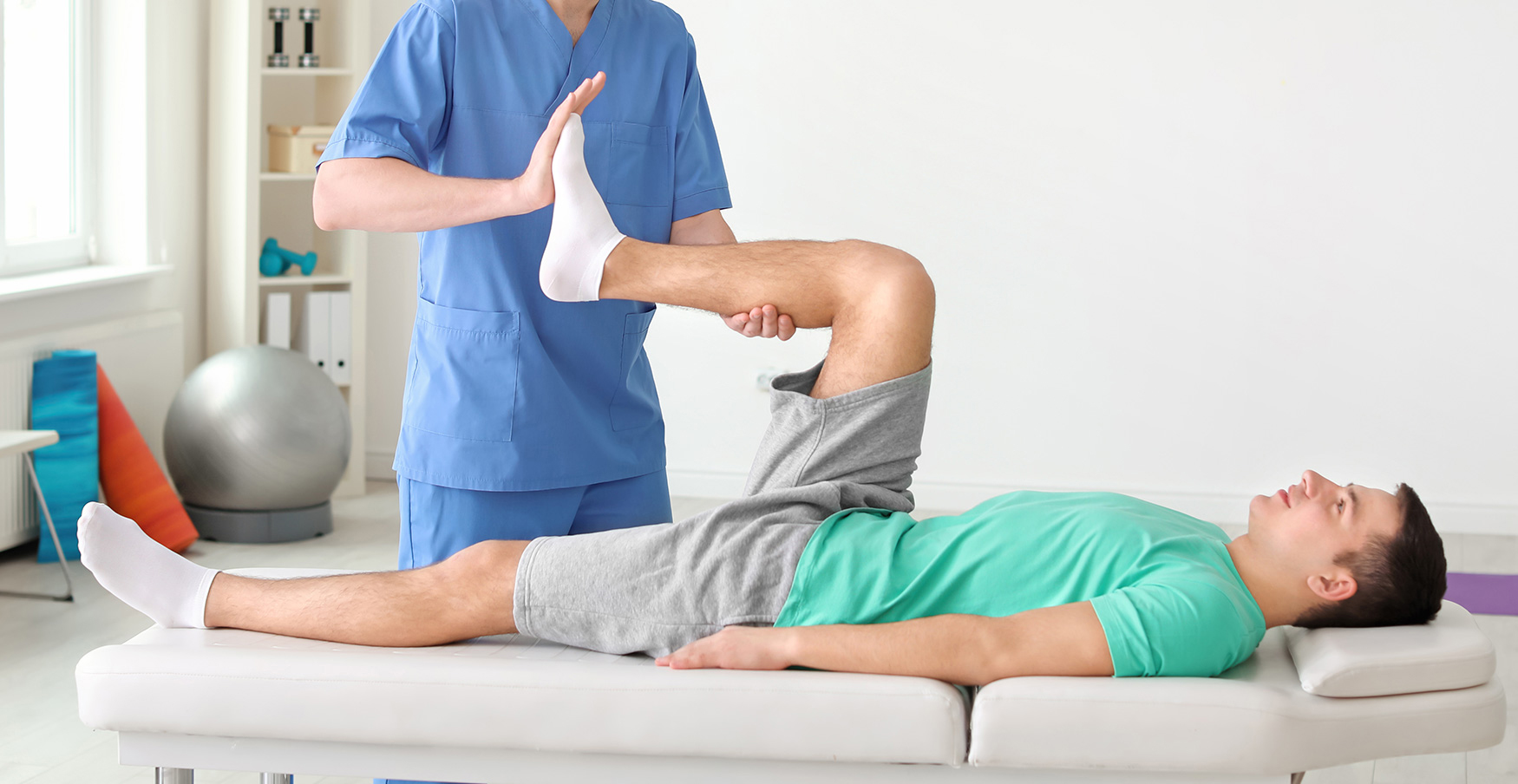
A small, friendly community
The UCO School of Osteopathy is a small, friendly community. Our students quickly get to know each other and form supportive bonds which often stay with them for life.
Our student population is diverse, and ranges from college-leavers undertaking their first degree to mature students who are furthering their studies or looking to make a career change. Students come from across the UK and around the world to study with us, including from Europe, Australia and Brazil.
Latest News
Discover and read all the latest news, press releases and happenings here at Health Sciences University.
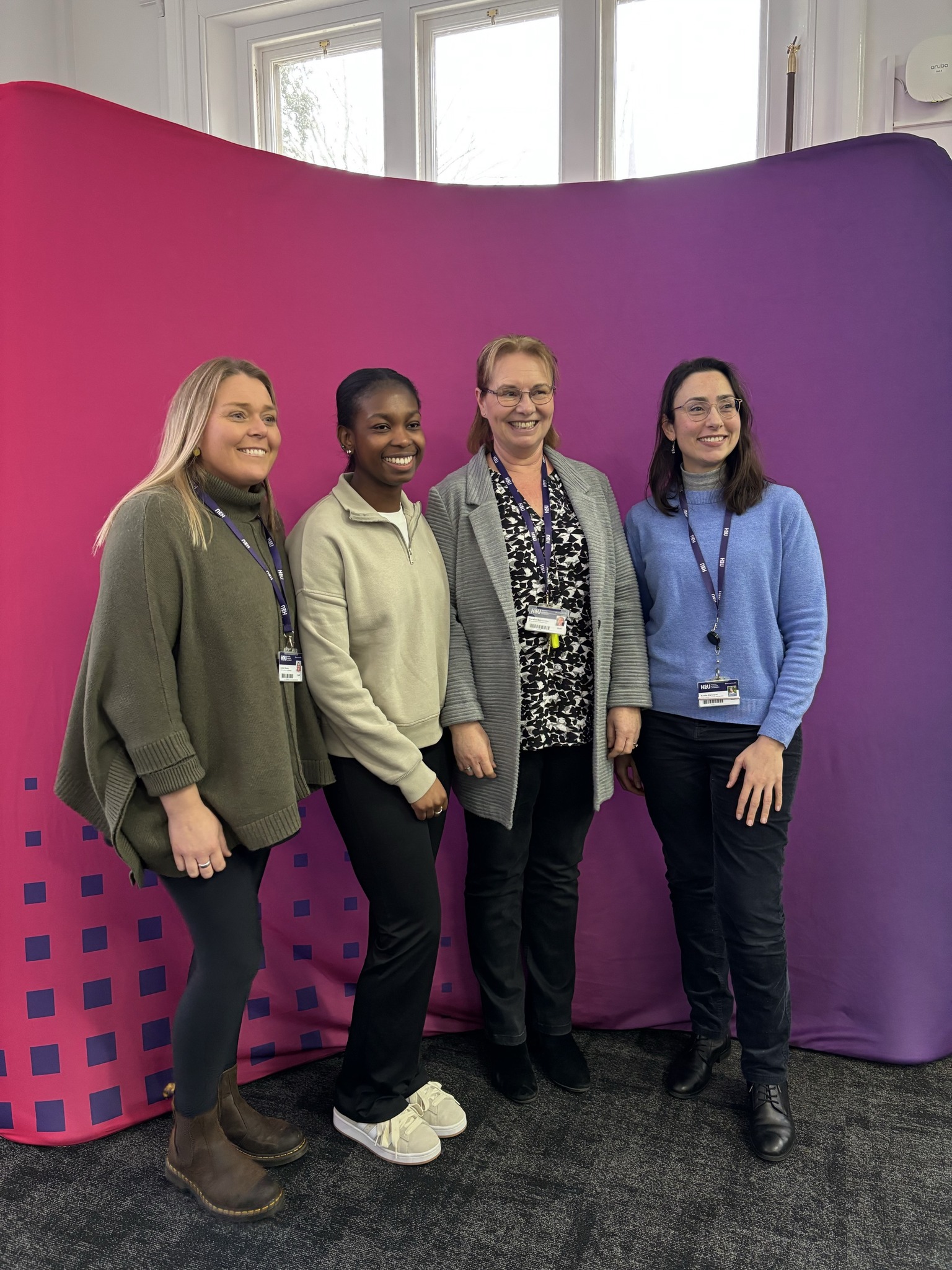
Health Sciences University (HSU) recently hosted a thought-provoking panel discussion in celebration of International Day of Women and Girls in Science.

Dr Mahitha Naidu has recently graduated from the MSc Podiatry (Pre registration) course at Health Sciences University.
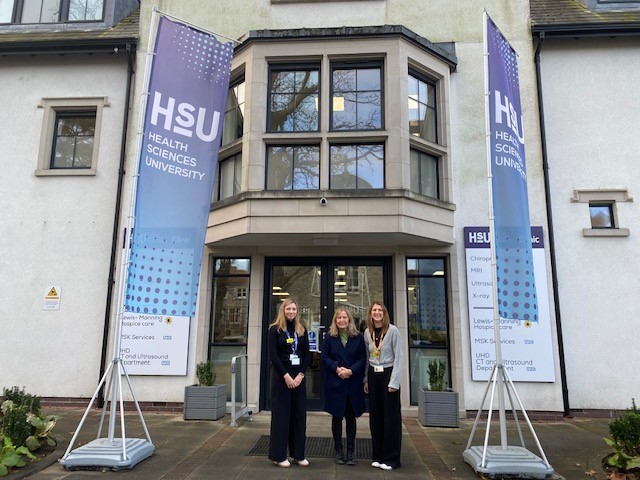
Health Sciences University, in collaboration with Dorset HealthCare, has launched a new Brain Health Clinic on its Bournemouth campus.
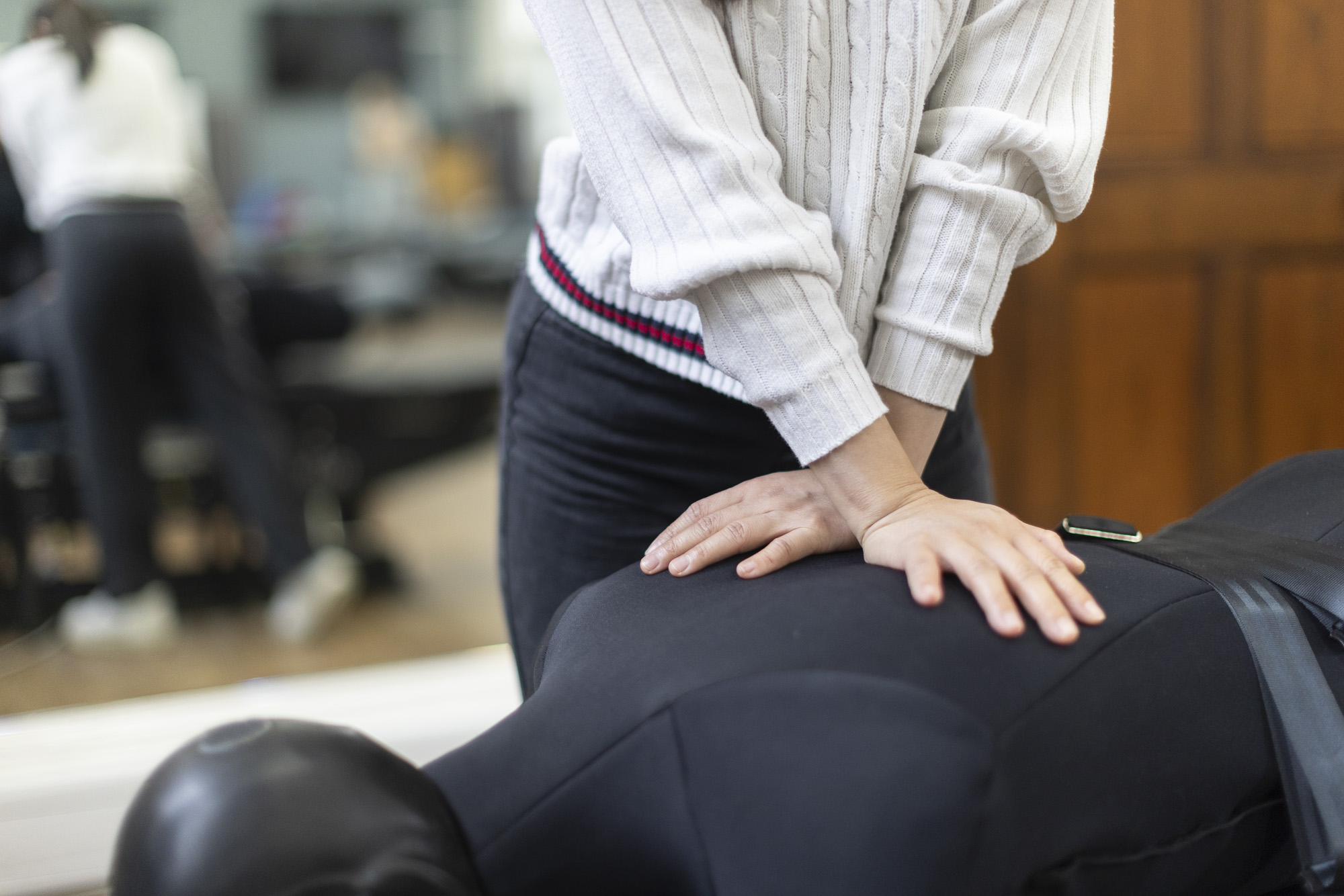
Carla tells us more about her experience of the course so far and what she enjoys about being part of the HSU community.
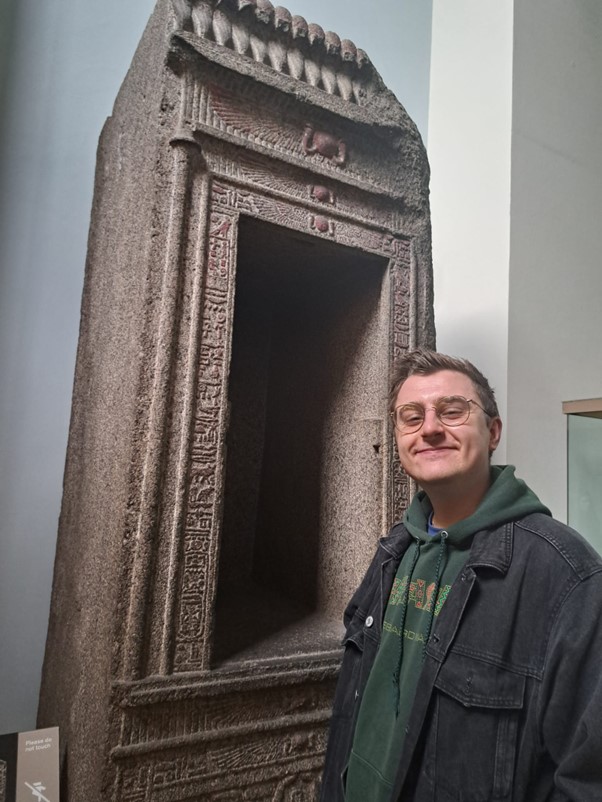
Dan Egelstaff is a First Year student on the MSc Occupational Therapy (pre-registration) course. The degree at Health Sciences University appealed to Dan when he was working as a Learning Disabilities Support Worker during the Covid-19 pandemic.
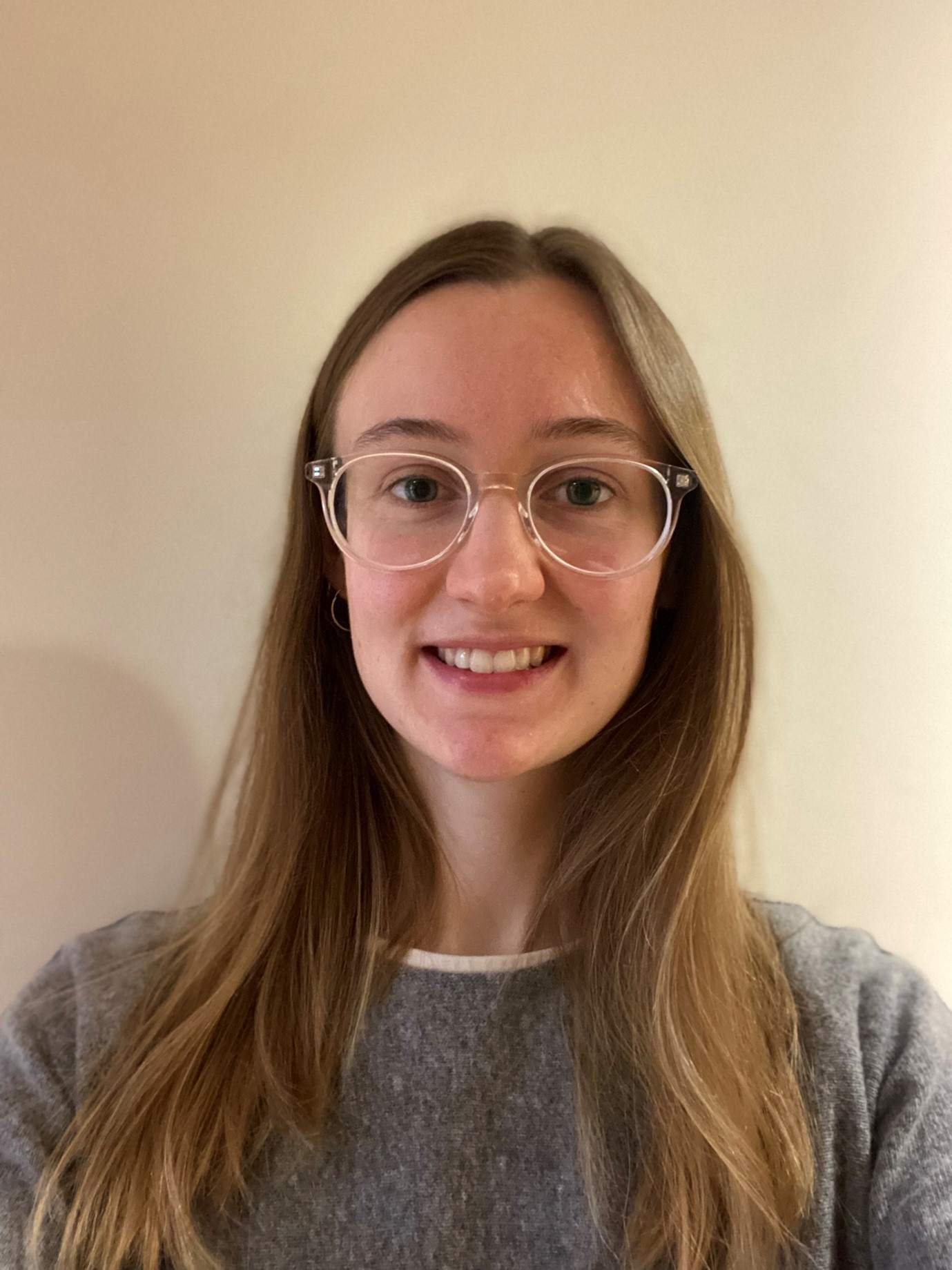
Natalia Purkiss is in her first year of the MSc Occupational Therapy (pre-registration) course at Health Sciences University.
